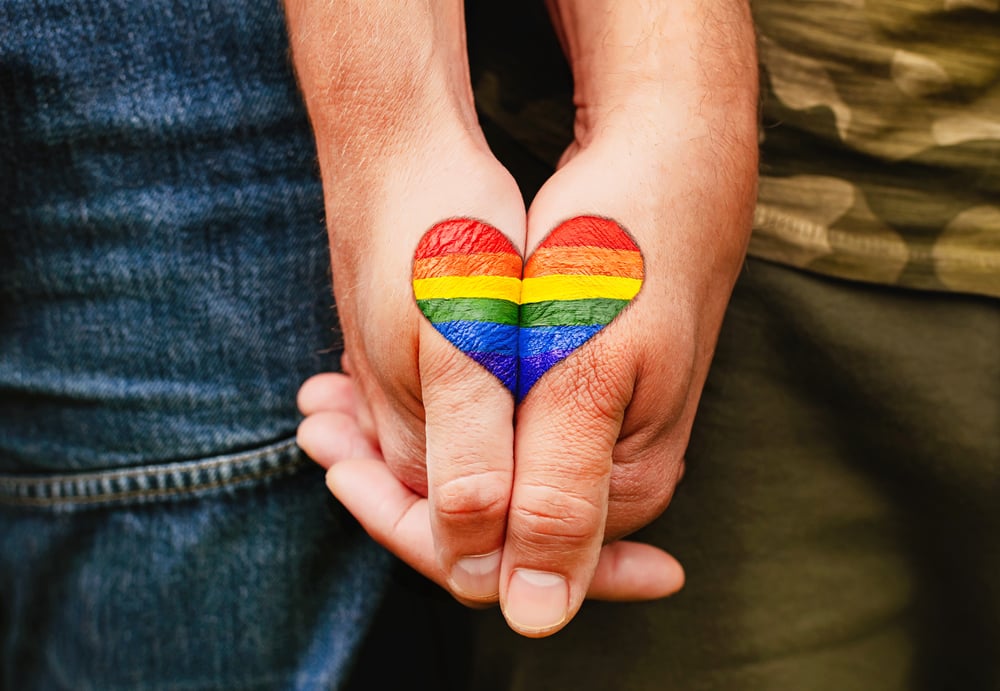
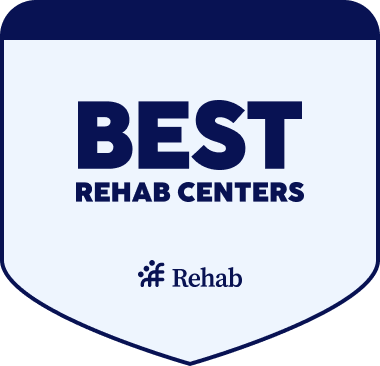
What Are LGBTQ-Specific Drug Rehab Programs?
Finding addiction treatment as an LGBTQ+ person can feel overwhelming, but you deserve care that is safe, affirming, and truly understands your story. This guide explains how top-rated LGBTQ drug rehab programs address unique challenges like discrimination, trauma, and co-occurring mental health issues while helping you build a lasting recovery. Read on to learn what to look for in a program so you can choose support that lets you heal as your full, authentic self.
Best LGBTQ+ Drug Rehabs
| Name / Address / Rating | Description | Treatments / Payments / Programs | Review / Contact | Images |
|---|---|---|---|---|
Cave Creek, AZ 1
Top 10 in LGBTQ Program
Rehab Score
Our Rehab Score is designed to make it easier for you to find the best treatment centers. We combine overall ratings with recent feedback to create a score that reflects a center’s quality right now.
8.90 / 10 | Soberman’s Estate, located in Cave Creek, Arizona, is an alcohol and drug rehab center that provides addiction treatment services to adult men, professionals, and public figures. They are a discrete, luxury rehab for individuals aged 30 to 80 years old. This location caps their treatment center at ten men at a time. As one of leading inpatient re | Treatments Programs Payment Options | Soberman’s Estate was everything I needed for my recovery. The staff, the program, physical activity and culinary experience were top notch and essential. The program is well designed and worked better than I expected. The staff is remarkable – professional, considerate and genuinely caring. My time there and being removed from alcohol for five weeks was everything I needed to remove my craving for alcohol. Soberman has changed my life in ways I never could have imagined. I feel confident, secure and grateful for my new life. I have reconnected with my family and friends. Thank you Soberman.
George B.
4 months ago
Yes, very professional staff, treatment, therapist, chefs were good! even the home cook did the best she could, and loved the horses of Course! Saturday morning hiking was fun to explore the trails of the nearby mountain area!
John E Williams
4 months ago
I had a great experience overall and would recommend it to anyone wanted to jump start their sobriety!!
Kevin Crawford
4 months ago
| 
5 5 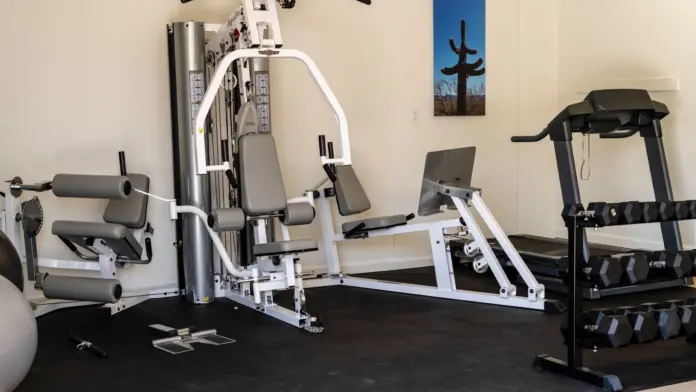
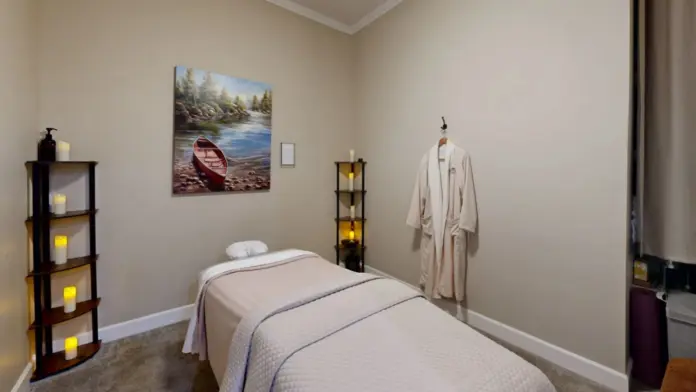


|
Clarksville, IN 2
Top 10 in LGBTQ Program
Rehab Score
Our Rehab Score is designed to make it easier for you to find the best treatment centers. We combine overall ratings with recent feedback to create a score that reflects a center’s quality right now.
8.81 / 10 | Avenues Recovery Center in Clarksville, Indiana, is an inpatient drug and alcohol detox and rehab center. They strive to provide individuals receiving treatment with a loving environment and attentive medical care. You’ll be away from toxic environments and triggers and have the opportunity to focus on developing life skills that will support you | Treatments Programs Payment Options | I highly recommend Avenues. The staff is absolutely amazing and very helpful. They treat you like family. Star, Jenny, Tarah, Paige, Monica, and both Amanda’s really helped me through.
Dana Key
1 month ago
It was a great experience great people thank you .
Jessica Fulkerson
1 month ago
This facility has been life saving. I am so grateful to be able to have gotten the help they had offered.
Nikki
1 month ago
| 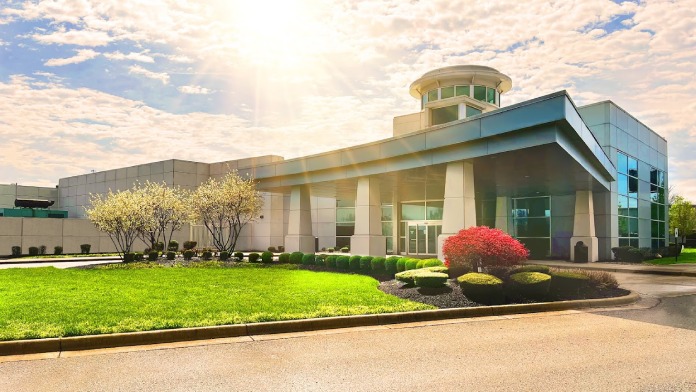
4 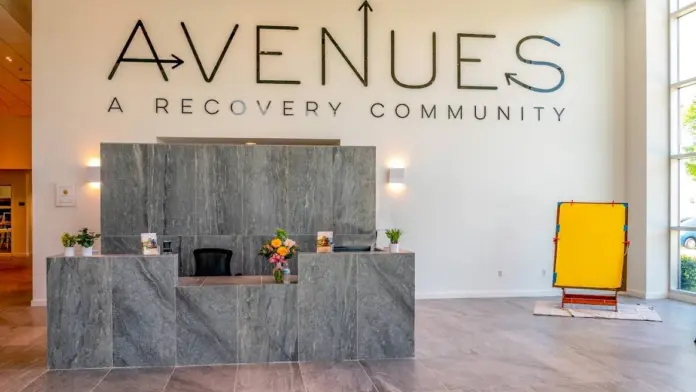
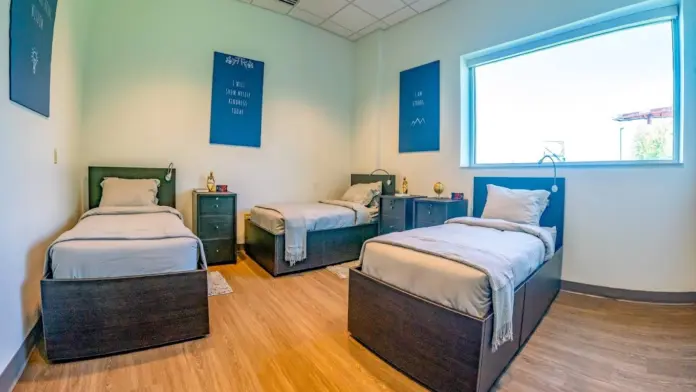
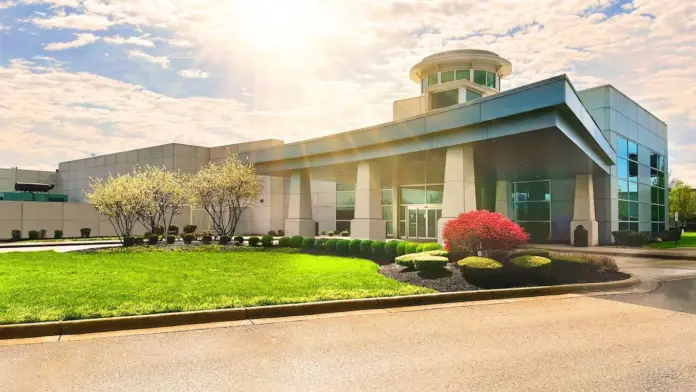
|
Simi Valley, CA 3
Top 10 in LGBTQ Program
Rehab Score
Our Rehab Score is designed to make it easier for you to find the best treatment centers. We combine overall ratings with recent feedback to create a score that reflects a center’s quality right now.
8.81 / 10 | All In Solutions Detox in Simi Valley is one of the best ranked inpatient detox facilities in California providing safe, medically supervised care for individuals beginning their recovery from drug or alcohol addiction. As part of the All In Solutions Behavioral Health network, this facility serves as the first step in a full continuum of care. Cli | Treatments Programs Payment Options | Amazing place they helped me get my faith back and I really enjoyed the groups. It was honestly the best treatment I have been to and I have been to guide quite a few. Thank you so much
chris carter
1 week ago
The staff and community were incredible. Very accommodating!
Kyle Forbes
1 week ago
Great place. Great staff. Hepsibeth is an excellent counselor!
Ryan McDonald
2 weeks ago
| 
5 5 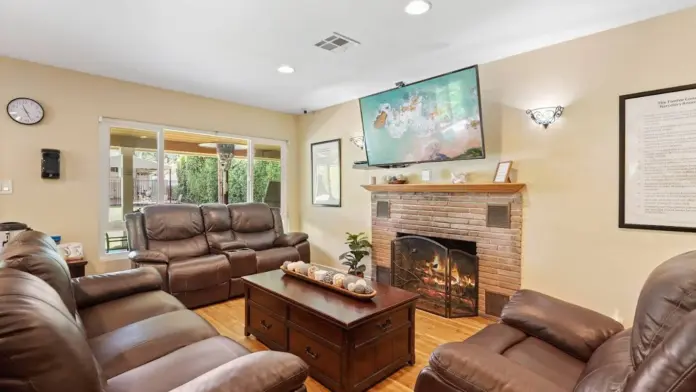

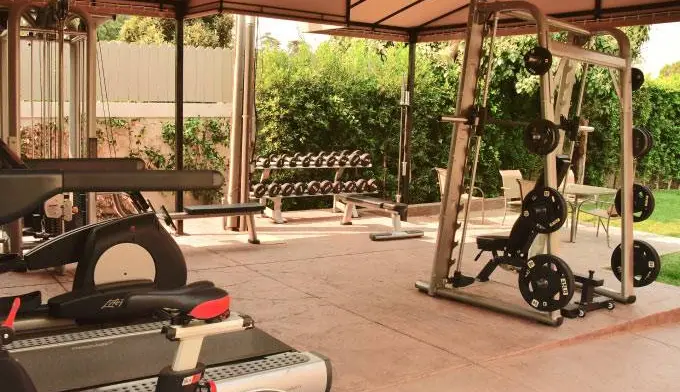
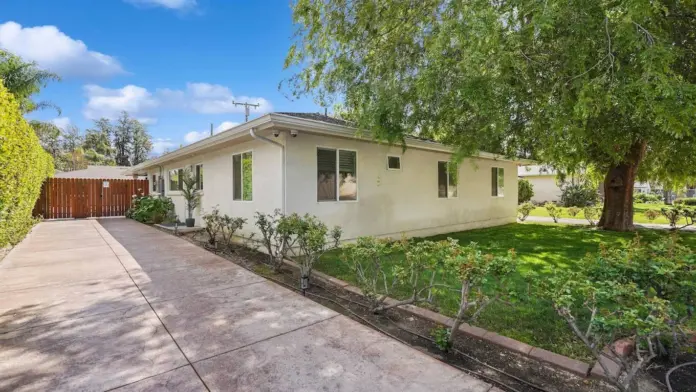
|
Baton Rouge, LA 4
Top 10 in LGBTQ Program
Rehab Score
Our Rehab Score is designed to make it easier for you to find the best treatment centers. We combine overall ratings with recent feedback to create a score that reflects a center’s quality right now.
8.80 / 10 | St. Christopher’s Addiction Wellness Center is an addiction rehabilitation facility in Baton Rouge, Louisiana. The center opened in 1998 with the vision of offering affordable addiction treatment. They have a residential treatment program for men along with outpatient treatment services available to men and women. They view substance use disorder | Treatments Programs Payment Options | St Christopher was a wonderful experience for me to get sober, learn about Alcoholics Anonymous, and learn about the disease and about myself. The staff from the front office down were fantastic, before, during, and after treatment. I would recommend this place to anyone
Todd Landry
6 months ago
I have been a professional interventionist since 2010. I was introduced to this program in 2012. I have been referring there since then. My clients have always had a positive experience and the clinical and support staff are the most responsive and knowledgeable. They want what’s best for the client and the family and have long term options. They do very well young adult males and most recently I referred a 69 year old man first time treatment. It was a family member and he’s doing very well and committed to 90 days of treatment. I can’t thank the clinical staff and administrators enough for the program they have created. Please contact me if you would like to know more. Thank you STC!!!
asher levine
8 months ago
This is my first time doing IOP and I luv it Mike Ramos is the best my family even luvs him good person great attitude he as a way of wanting to do right and stay right and you can tell he is genuine about his job unlike miss star he as a way of teaching addiction were you understand it always keep Mike and his little dog brisket he’s a big part of Saint Christopher’s
Cedric Banks
1 year ago
| 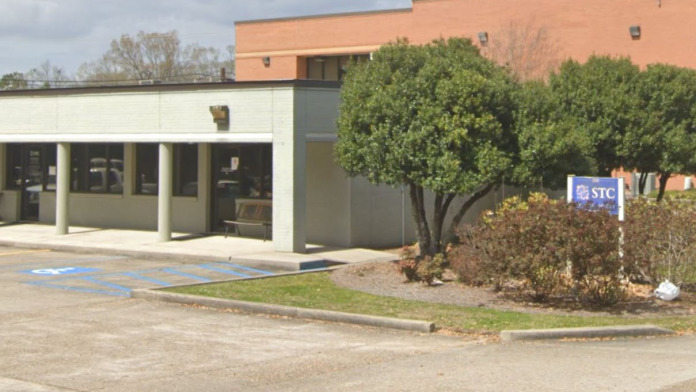
5 5 
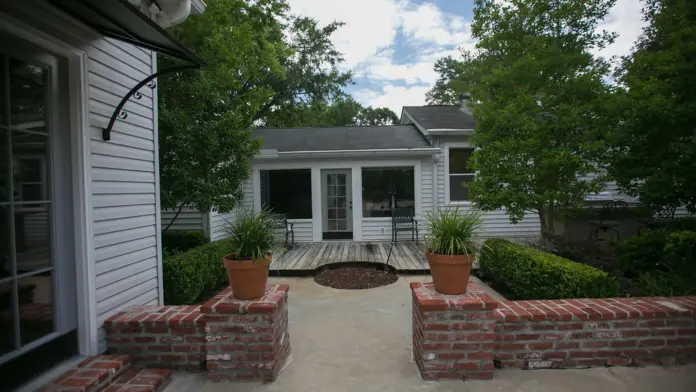
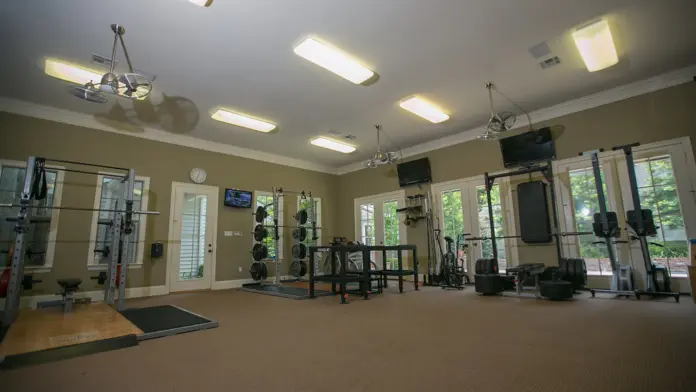

|
Hurst, TX 5
Top 10 in LGBTQ Program
Rehab Score
Our Rehab Score is designed to make it easier for you to find the best treatment centers. We combine overall ratings with recent feedback to create a score that reflects a center’s quality right now.
8.80 / 10 | Symetria – Hurst Outpatient Rehab and Suboxone Clinic in Hurst, Texas, is a private drug rehabilitation clinic for adults. One of the best outpatient rehab centers in Texas, Symetria offers various withdrawal medications to help clients get started with their recovery journey. You’ll also have access to treatments such as the intensive outp | Treatments Programs Payment Options | Symetria is unbelievably amazing!!! The Hurst staff is phenomenal!!! I can’t imagine that another location has a better staff. A special shout out to Deborah, Benjamin, and Samantha of course. You all are doing amazing, amazing, selfless work. You all are very special to so many!!!
Vernon Godsey III
4 months ago
Huge shout out to the team at symetria who make me feel like family I appreciate everything they do and huge shout out to Osagie for helping me! He is AWESOME!!! I love you symetria❤️❤️❤️
Chloe Roseman
4 months ago
BEST PLACE EVER. I have tried various other doctors/clinics and none of them even begin to compare to this one. The staff here is absolutely amazing. I can’t even make a single complaint. Dr Son is the best as well. He explains everything and you truly feel like he understands you. I can proudly say this, this place saved my life. If you or someone you know needs help getting off opiates do it right the first time and come here. You won’t be disappointed. If you are specifically struggling with fentanyl please don’t waste your time with other ways. I have tried 6 other methods from lazer therapy to having the earpiece to suboxone. Methadone is the key to our current fentanyl crisis. This clinic makes recovery possible again!
Mason
5 months ago
| 
5 5 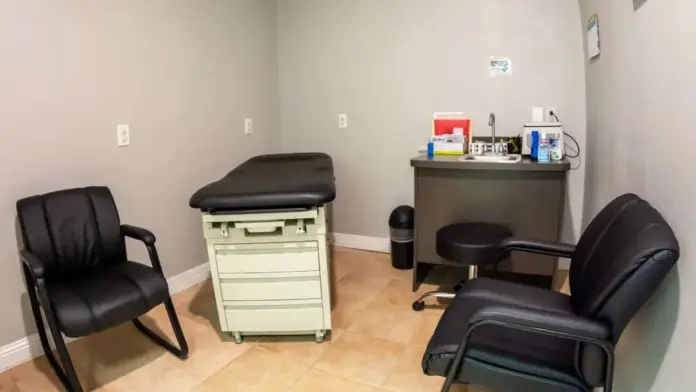
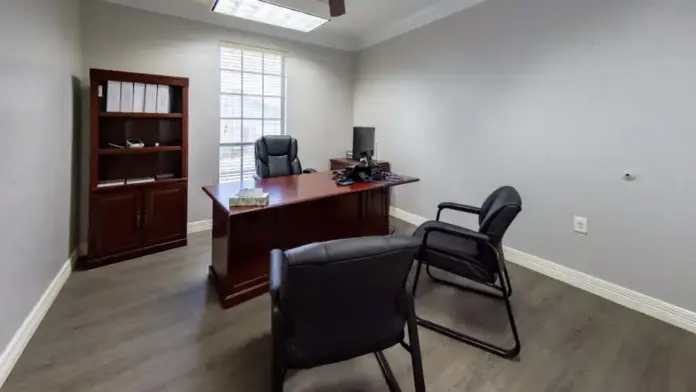
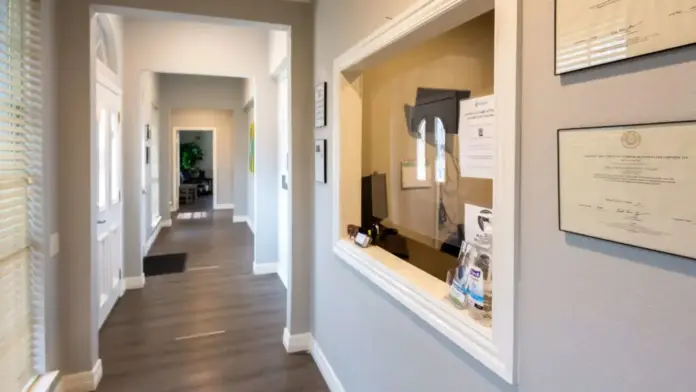
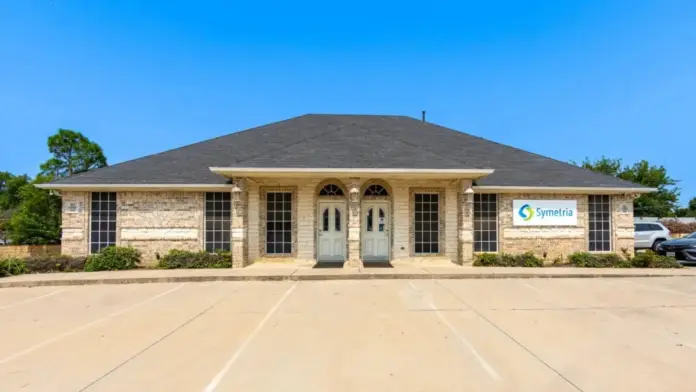
|
Boynton Beach, FL 6
Top 10 in LGBTQ Program
Rehab Score
Our Rehab Score is designed to make it easier for you to find the best treatment centers. We combine overall ratings with recent feedback to create a score that reflects a center’s quality right now.
8.80 / 10 | All In Solutions Counseling Center is a mental health center and addiction treatment program in Boynton Beach, Florida. They provide a partial hospitalization program, an intensive outpatient program (IOP), an outpatient program, medication-assisted treatment, and mental health care for adults with substance use disorder. All In Solutions Counseli | Treatments Programs Payment Options | The staff were amazing. Can really tell the people care about you. Amazing people who have lived through the experience and recovery they are trying to show all of us. Can’t recommend it enough.
Tyler
3 weeks ago
such a good facility. love all the staff! nicole is an awesome therapist!
Sydney Shaw
1 month ago
All In Solutions received me with open arms for the second time. The staff make sure you receive a high quality care treatment. I’m grateful for the love and care . God continue to bless everyone.Thank you for you do .
Jianil Richiez
1 month ago
| 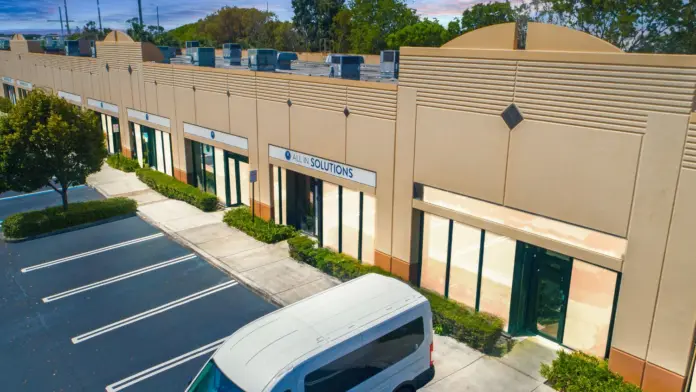
4 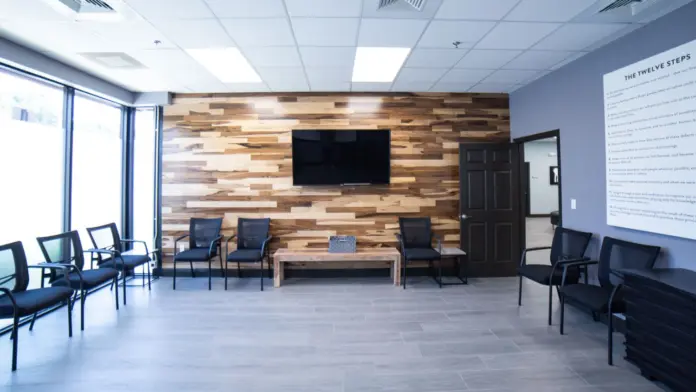
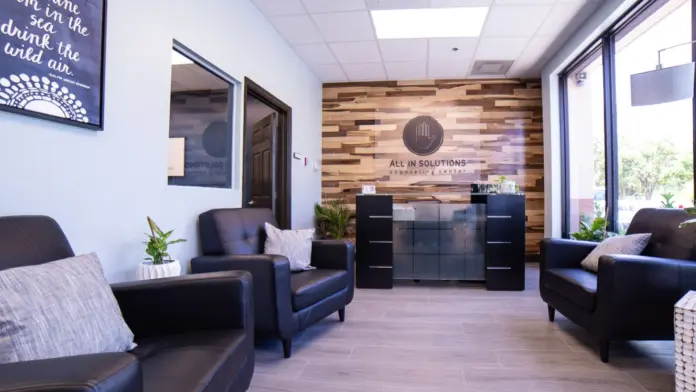
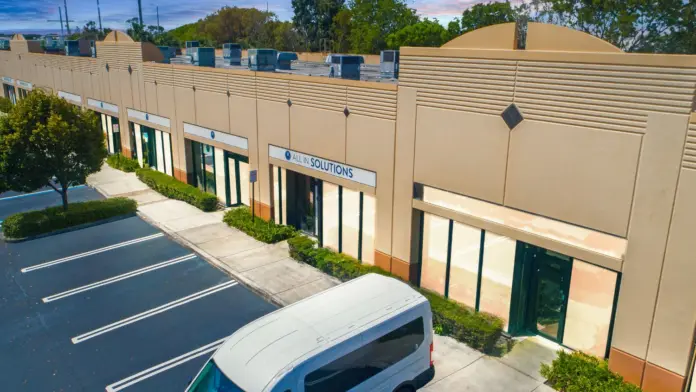
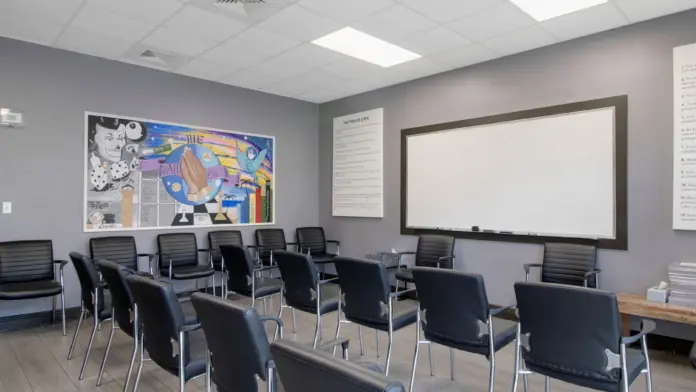
|
Galloway, NJ 7
Top 10 in LGBTQ Program
Rehab Score
Our Rehab Score is designed to make it easier for you to find the best treatment centers. We combine overall ratings with recent feedback to create a score that reflects a center’s quality right now.
8.80 / 10 | Boca Recovery Center – Galloway is a drug and alcohol rehab in Galloway, NJ. They provide inpatient addiction treatment and medical detox. Boca Recovery Center Galloway is a 22-bed addiction treatment facility in Galloway, New Jersey, offering medically supervised detox, residential care, and outpatient programming in an upscale, evidence-based | Treatments Programs Payment Options | My experience was very professional and helpful! The detox and rehab experience has made an impact on my life and future, I am very grateful for the staff and my therapist Ashley was absolutely amazing. The time I spent here, they provided good attention to what has to be focused on.
Anna Mattina
2 weeks ago
Great facility, was absolutely the best move I could’ve made! Staff, nurses and chefs are top notch! Wanna start getting well, Boca jersey is the place to come and get help!
Meagan Stranninger
3 weeks ago
My sobriety journey started at Boca. The staff members including Miss Tracey, Hannah and Kevin their alumni coordinator have completely flipped the trajectory of my life. I was immediately taken in with open caring arms and they made my detox process as comfortable as possible. During my stay, Joe was extremely helpful in helping me slowly gain my appetite back and start to feel stronger and was so attentive to my nutritional health. Nurse Patrick was so kind to me during my intake and Kevin still reaches out to me very often to check in and is so helpful in my recovery process. I owe gaining my life, my strength and my family back to Boca and I am eternally grateful❤️
Rianna Dean
1 month ago
| 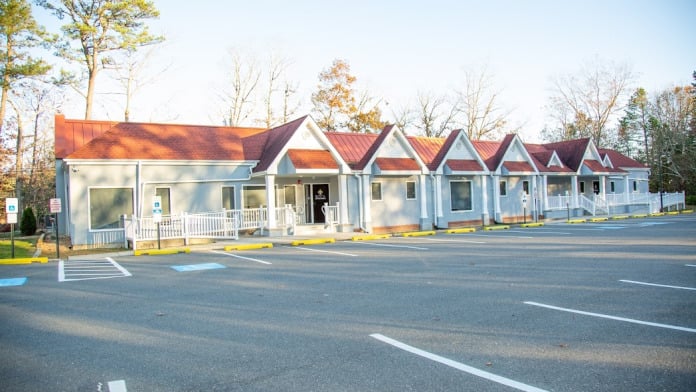
7 7 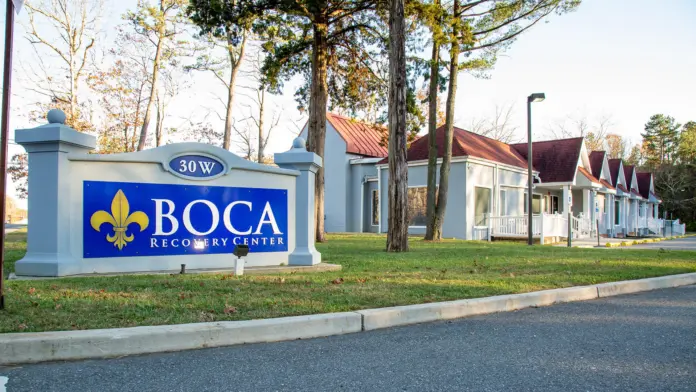
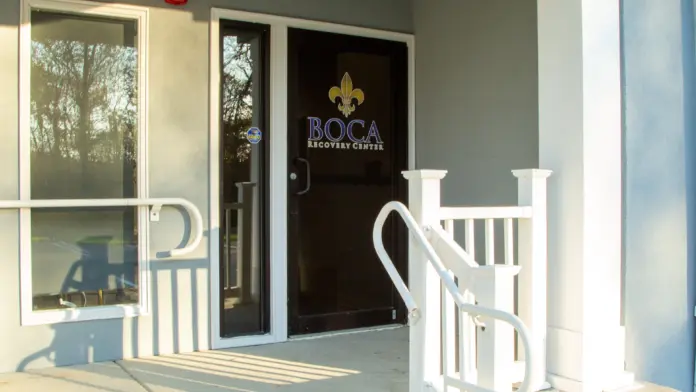
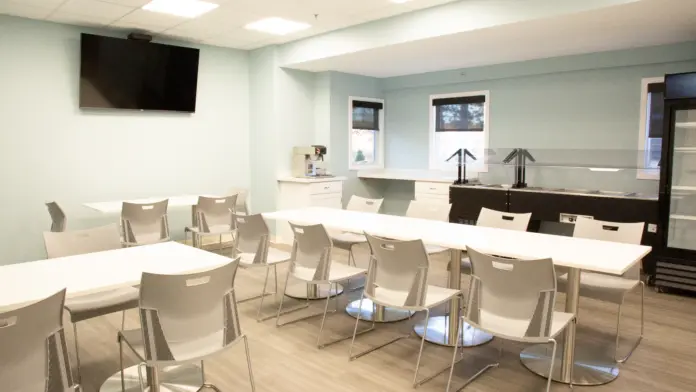
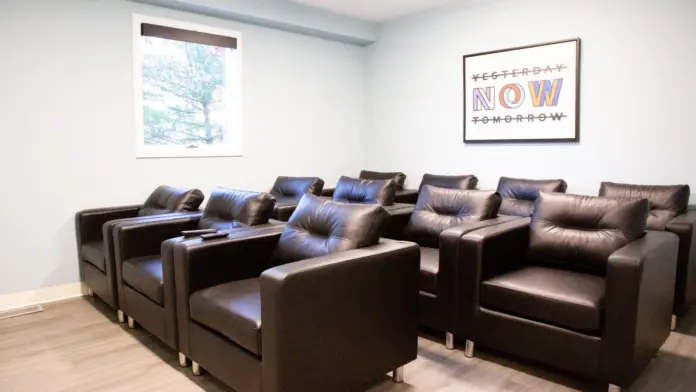
|
Bloomington, IN 8
Top 10 in LGBTQ Program
Rehab Score
Our Rehab Score is designed to make it easier for you to find the best treatment centers. We combine overall ratings with recent feedback to create a score that reflects a center’s quality right now.
8.77 / 10 | The Boca Recovery Center is a luxury alcohol and drug rehab center for adults in Bloomington, Indiana. They specialize in cutting edge addiction treatment provided in a residential setting. Boca Recovery Center Bloomington is a luxury addiction treatment center in Bloomington, Indiana, offering medical detox, residential treatment, and partial hosp | Treatments Programs Payment Options | Incredible place to find yourself, great sense of community. The entire staff truly cares about the well being of clients
Isaiah
1 week ago
Great place they do great work recommend it to anyone who needs the help
Alex Lewis
1 week ago
Really guud experience
Checkers –
1 week ago
| 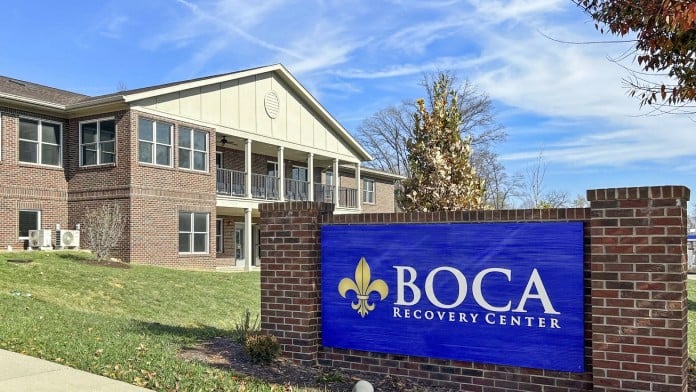
6 6 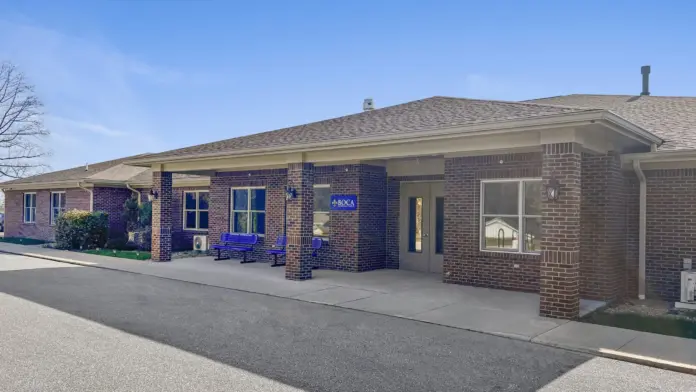
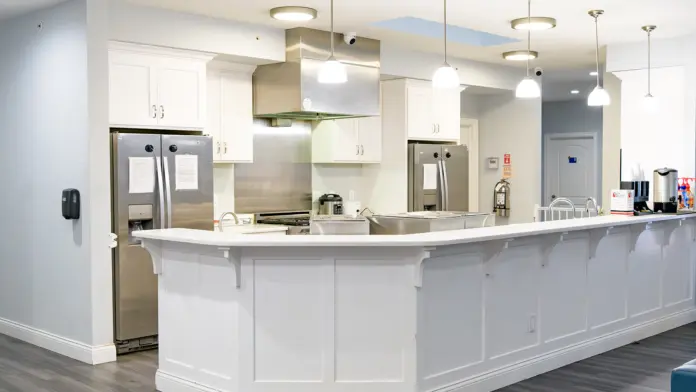
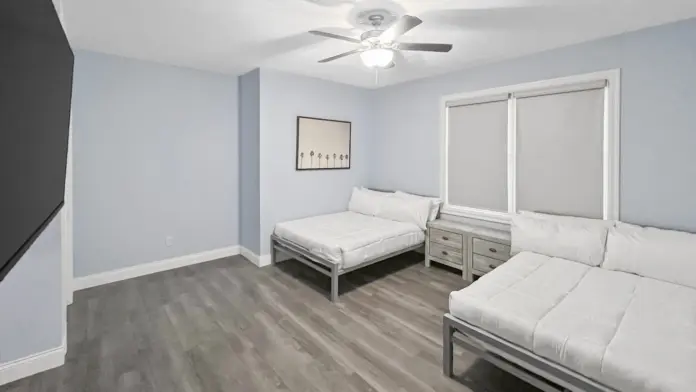
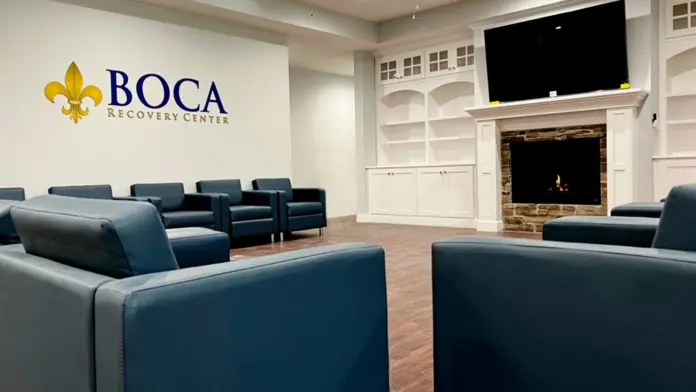
|
Woodbury, TN 9
Top 10 in LGBTQ Program
Rehab Score
Our Rehab Score is designed to make it easier for you to find the best treatment centers. We combine overall ratings with recent feedback to create a score that reflects a center’s quality right now.
8.77 / 10 | If you’re looking for a Christian-based men’s drug rehab center, S2L Recovery in Woodbury, Tennessee, might be the place for you or your loved one. Located at the top of Short Mountain, and overlooking the green hills of Middle Tennessee, this residential and detox clinic boasts a one-to-one staff/patient ratio so there’ll always be someone t | Treatments Programs Payment Options | Coming from Canada, I was hesitant. But God knew that S2L was exactly where I needed to be. At 64 years of age, I was able to discover my true identity, purpose, and mission in Christ. They help you in trying to get clean and sober for sure. But what S2L and the staff are all about is the Gospel of Jesus Christ. That’s why it is so successful.
TIM TANNER
4 months ago
I’ve had the privilege of seeing the life-changing impact this ministry has on countless men & I can’t recommend it highly enough! God has His Hand on this ministry & I’m honored to see the Lord work in these men!
Hunter Stanfield
4 months ago
Come here with a open mind and heart. It can and WILL change your life in all ways. Trust the process and trust God! Could go on and on about how amazing this place, I’ll forever be grateful!
Trevor Woodard
4 months ago
| 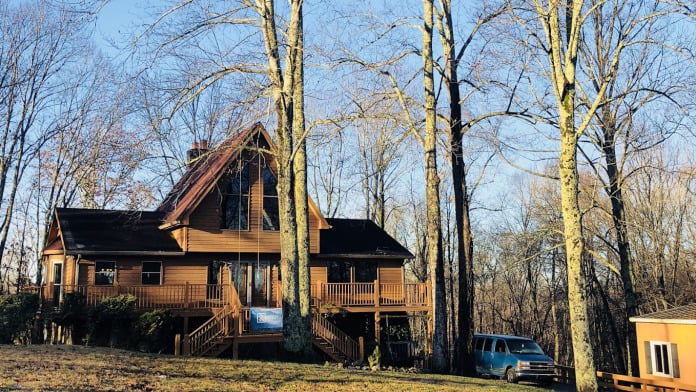
6 6 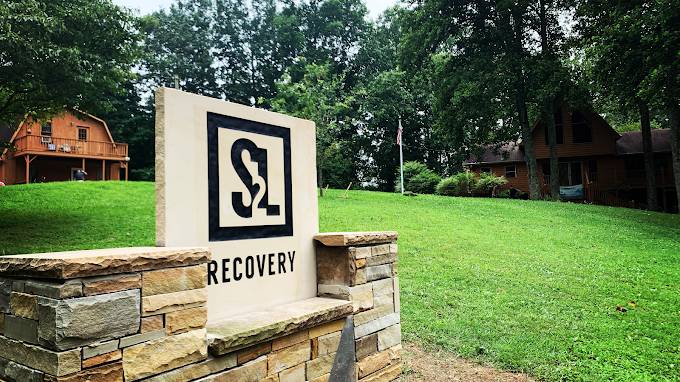

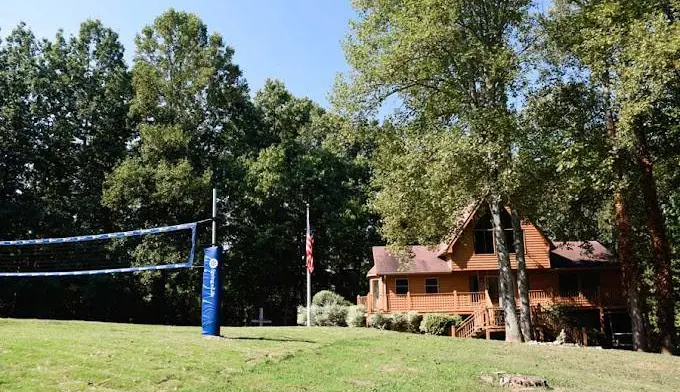

|
Malibu, CA 10
Top 10 in LGBTQ Program
Rehab Score
Our Rehab Score is designed to make it easier for you to find the best treatment centers. We combine overall ratings with recent feedback to create a score that reflects a center’s quality right now.
8.76 / 10 | Rise in Malibu is a secluded drug and alcohol rehab program in Malibu, California. They deliver Joint Commission accredited detox, inpatient treatment, medication assisted treatment (MAT), and aftercare services to adult clients. Their campus boasts luxury amenities and a seaside view. Detoxification at Rise Malibu takes place in its luxury residen | Treatments Programs Payment Options | Received wonderful care here. From the moment I entered the facility, I knew I was in good hands. Something obvious about Rise early on is the amount of care and interest the team has in you and your recovery. At every point of my journey, I was confident that the team had my best interests in mind. The location is gorgeous and comfortable. Every day I looked forward to the engaging group therapies, the kind and friendly conversations I enjoyed with staff, and the wonderful food prepared by the chefs. I highly recommend Rise if you find yourself in need
Zeke Bluestone
1 week ago
Rise in Malibu exceeded my expectations at every level. The setting is peaceful and restorative, but what truly stood out is the care. The staff treated me with unconditional respect, compassion, and professionalism from day one. Therapy was thoughtful and individualized, combining clinical depth with holistic options that supported both physical and emotional healing.
The program structure provided accountability while still allowing space to breathe and reset. Group sessions felt safe and meaningful, and the one-on-one work helped me understand patterns and build real tools for life outside treatment. Even the daily routines, meals, and amenities reflected a genuine commitment to wellness and dignity.
If someone is looking for a place that balances clinical excellence with humanity and respect, Rise in Malibu delivers. I’m grateful for the experience and for the foundation it gave me moving forward.
Candice Wild
1 week ago
Rise truly changed my life. From the moment I arrived, I felt genuinely cared for by every member of the staff (even the nurses). The environment was warm, supportive, and welcoming in a way that immediately put me at ease. I came in feeling very anxious and unsure of what to expect, but the care and kindness I was met with made a huge difference right away.
The techs Luke and Tessa were incredibly kind, attentive, and present throughout my stay. They consistently showed up with patience and compassion, and it was clear they truly cared about the clients (they’re all easy to get along with). Nam, the house manager, was amazing and played a huge role in making the house feel like a real home. His presence, and care for everyone created a sense of safety and community that made a difficult time feel manageable.
What stood out most was how well everyone got along. There was a strong sense of connection not only between clients, but between staff and clients as well. The groups and therapy sessions were extremely helpful, thoughtful, and well run. I learned a great deal about myself, my patterns, and the tools I need to stay grounded and present.
This experience helped me through a very dark period in my life when I felt myself beginning to slip. Rise gave me clarity, structure, and insight at a moment when I really needed it. I left feeling stronger, more self aware, and better equipped to move forward. I highly recommend Rise to anyone who is struggling and looking for genuine support and meaningful growth. I’m writing this lengthy review because I truly mean it. Couldn’t have asked for a better place to start my journey of sobriety – so thank you 🙂
Justin Chi
1 month ago
| 
6 6 



|

LGBTQ-Specific Addiction Treatment Programs
LGBTQ-Specific Addiction Treatment Programs
Individuals in the LGBTQ+ community face unique challenges when it comes to addiction and recovery. They face discrimination, rejection, trauma and co-occurring disorders at higher rates than the general public, marking a rising need for LGBTQ+ drug rehab and assistance.
All of these can contribute to substance use disorder and make recovery more difficult, and they need to be addressed in treatment. Finding a culturally competent program that provides support and inclusion creates a safe environment where recovery is possible.
Key Facts
Key Facts
- LGBTQ+ drug rehab programs are designed specifically for the needs, experiences and safety of LGBTQ+ clients.
- LGBTQ+ specific rehabs are important because people in this community often experience traumas and challenges that others can’t relate to and that may not be addressed appropriately in broad rehab programs.
- LGBTQ+ rehabs create a place where people in the LGBTQ+ community can feel safe and know that they won’t face discrimination while they work toward recovery.
- There are LGBTQ+ programs at every level of care from detox to residential drug rehab to outpatient therapy, as well as sober living and aftercare.
- LGBTQ+ programs are tailored to help with co-occurring mental health conditions and traumas that are more common among people in this community.
- When choosing an LGBTQ+ program, you should look at insurance coverage and the level of care as well as factors like accreditations and qualifications, and recommendations from others in the community.
What Are LGBTQ+ Specific Drug Rehab Programs?
What Are LGBTQ+ Specific Drug Rehab Programs?
LGBTQ+ drug rehab programs are specialized programs for people who identify as LGBTQ+.
These programs understand that members of the community face trauma, discrimination and barriers to care that others don’t. That is why a program that addresses the specialized needs with a person centered approach to addiction is extremely important.
It’s important to note that there is a difference between LGBTQ+ specific programs and LGBTQ+ friendly programs.
LGBTQ+ specific programs have been designed for LGBTQ+ clients and include staff who have received in-depth competency training, use gender affirming and inclusive language, and have policies in place to ensure the safest, most inclusive environment for treatment.
LGBTQ+ friendly programs welcome members of the community, but are not exclusive to LGBTQ+ clients, nor are they specifically tailored to the community.
How LGBTQ+ Drug Rehab Programs Differ from Traditional Settings
How LGBTQ+ Drug Rehab Programs Differ from Traditional Settings
In addition to receiving education on addiction, individual and group therapy and relapse prevention planning that are the foundation for most addiction programs, these programs address issues that are specific to LGBTQ+ clients.
These include issues such as coming out, gender dysphoria, societal and family rejection, stress and violence. These are difficulties that so many women and men in the community face, and they are often contributing factors in their battle with addiction.
As well, LGBTQ+ programs acknowledge a person’s gender identity and will provide housing and bathroom arrangements based on that, rather than requiring them to follow the sex they were assigned at birth.
Why Specialized Care Matters for LGBTQ+ Individuals
Why Specialized Care Matters for LGBTQ+ Individuals
Specialized care addresses the issues that members of the LGBTQ+ community face that can contribute to addiction. In a traditional drug rehab program, clients who face these issues may not have anyone else in their peer groups or among their counselors who can understand and relate to these experiences.
LGBTQ+ specific programs address these needs in a safe, accepting environment that provides the support needed for long term recovery.
High Rates of Substance Use in LGBTQ+ Communities
According to the Substance Abuse and Mental Health Services Administration (SAMHSA), approximately one-third of bisexual men, bisexual women and gay men, and one-fourth of lesbians have a substance use disorder.
The National Surveys on Drug Use and Health found that when compared to people who are heterosexual and cisgender, LGBTQ+ individuals misuse methamphetamines, marijuana, opioids and alcohol at higher rates.
Additionally, youth members of the community have higher rates of early onset experimentation with alcohol or drugs that can contribute to the development of a substance use disorder.
There are numerous potential reasons for this, including self-medicating the mental health effects of trauma and rejection with drugs and alcohol. Regardless of the reason, people in the LGBTQ+ community need safe, welcoming, and affirming places where they can get person centered treatment.
Co-Occurring Mental Health and Trauma Concerns
The National Alliance on Mental Illness (NAMI) found that individuals in the LGBTQ+ community face mental illnesses such as anxiety, depression, and PTSD at nearly double the rate of people who are heterosexual and cisgender.
1 in 10
More than 1 in 10 of LGBTQ+ youth have attempted suicide in the last year.
Tragically, the Trevor Project found that 39% of LGBTQ+ youth have seriously considered suicide, with youth of color reporting higher rates than their white peers and more than 1 in 10 have attempted suicide in the last year. Sadly, for LGBTQ+ youth, suicide is the number one cause of death.
Of transgender adults have reported attempting suicide in their lifetime.
These unfortunate trends continue in adulthood as well. NAMI reported that 40% of transgender adults have attempted suicide in their lifetime compared with less than 5% of the general population.
28 percent of LGBTQ people have been subject to harassment in medical settings, and 2 percent were subject to violence.
22 percent of transgender individuals have been denied healthcare outright.
These shocking statistics highlight the need for mental health care throughout the recovery process and the need for LGBTQ+ programs to adequately address the traumas that people in this community so often face.
Minority Stress, Stigma and Discrimination Drivers
Members of the LGBTQ+ community often face harassment, rejection and discrimination that result in shame, increased anxiety and depression that most others don’t have to live with.
Even outside of being mistreated, LGBTQ+ people are in the minority, which can itself lead to feelings of isolation, fear and misunderstanding. Because of these stressors, some LGBTQ+ individuals turn to substance misuse or overuse as a coping mechanism, increasing their risk of developing a substance use disorder.
When we examine the numbers, they clearly demonstrate the need for care for co-occurring disorders and integrated crisis planning as an integral part of a comprehensive, individualized treatment plan.
Core Components of an LGBTQ+ Affirming Drug Rehab Program
Core Components of an LGBTQ+ Affirming Drug Rehab Program
In addition to education, therapy and counseling, life skill development, medical care and relapse prevention, an LGBTQ+ affirming program should include specialized support for LGBTQ+ clients in several ways.
Culturally Competent, Trained Staff
Having staff that recognizes the unique circumstances that members of the LGBTQ+ community face helps to provide a safe and respectful environment that builds trust, understanding and acceptance, all of which are critical pieces of a treatment plan that focuses on long term recovery and change.
In many cases, LGBTQ+ programs also aim to hire staff who are in the LGBTQ+ community so they can better relate to their clients’ experiences.
Gender Affirming and Sexual Identity Inclusive Therapy
Using and respecting a person’s chosen name and pronouns can go a long way when creating an inclusive and affirming environment within a treatment program.
When an aspect of a person’s identity is rejected or criticized, it adds to their trauma and also prevents them from feeling safe to be open in therapy, so LGBTQ+ programs ensure that this won’t happen in treatment.
Moreover, addressing the unique circumstances that members of the LGBTQ+ community face when coming out, transitioning or just trying to exist in a world where they face frequent discrimination, prejudice and even violence allows for stronger therapeutic and peer to peer relationships which lead to better treatment outcomes.
Safe Housing, Room Assignments and Facilities
A treatment program that is designed specifically for or welcomes members of the LGBTQ+ community should include gender inclusive rooms or pods, where individuals are able to choose rooming assignments that align with their gender identity.
Likewise, they should include gender neutral bathrooms, offer private bath or shower areas and have strict anti harassment policies that are taken seriously and strictly enforced. All of this helps to foster a safe and supportive environment where individuals can focus on getting better.
Integrated HIV/PrEP and Sexual Health Services
We know that members of the LGBTQ+ community face higher rates of HIV/AIDS, especially gay and bisexual men, when compared to the general population.
For this reason, a comprehensive treatment program that focuses on or supports LGBTQ+ individuals should include on site STI testing and treatment, education on the dangers of chemsex, and initiation of PrEP/PEP. In doing this, these programs can better care for the clients’ whole-person health.
Family and “Chosen Family” Engagement
Family involvement in alcohol or substance use disorder treatment can be especially hard for LGBTQ+ individuals who have faced rejection from their biological families or loved ones. For this reason, inclusion of intimate partners, friends or sponsors plays an important role in an individualized treatment plan.
In addition to playing a key role in long term recovery, having supportive people in their life reduces the risk of suicidality, especially among LGBTQ+ youth. Programs for LGBTQ+ communities understand and respect that their clients may be closer with their “chosen families” and can help to build supportive relationships.
What to Expect in LGBTQ+ Drug Rehab: Levels of Care and Treatment Modalities
What to Expect in LGBTQ+ Drug Rehab: Levels of Care and Treatment Modalities
Considering factors such as severity and duration of the addiction, need for medically supported detox or need for cooccurring disorder treatment will help to determine the proper level of care needed to take the next step towards a life in recovery.
48 percent of transgender and gender non-conforming individuals have postponed medical care due to lack of funds, and 28 percent due to discrimination.
Each person’s journey is different in rehabs for LGBTQ+ clients, but these are some of the treatments and levels of care you may encounter.
Medical Detox and Withdrawal Management
Medical detox and withdrawal management are especially important for people with addiction to alcohol, opioids, benzodiazepines and certain stimulants such as methamphetamine. Individuals require close medical supervision and support to safely and effectively detox from these substances.
Because the withdrawal process can be uncomfortable and in some cases dangerous, medical professionals may assist by administering medications that ease withdrawal symptoms, curb cravings and provide comfort measures while monitoring for any complications.
The around-the-clock medical supervision allows for early intervention if complications do arise.
Residential or Inpatient Rehab
Residential or inpatient LGBTQ drug rehab provides 24/7 support in a structured environment that includes individual, group and experiential sessions, complementary treatments and peer support and affirmation that is especially important for LGBTQ+ individuals in treatment.
30 to 90 Days
Inclusive inpatient programs typically range from 30 to 90 day stays and are generally followed by continued outpatient treatment.
Partial Hospitalization Programs (PHP) and Intensive Outpatient (IOP)
These programs offer intensive and structured treatment while allowing for flexibility that enables continued work or family commitments because you live at home, not on site, during treatment.
Individuals participate in one on one counseling and group therapy sessions several days or evenings per week. Along with therapy and education, LGBTQ+ individuals receive peer support and find the inclusivity and understanding that promotes a life in recovery.
Standard Outpatient and Telehealth Therapy
Standard outpatient therapy provides continued treatment for individuals who have mild to moderate addiction and a strong support system, or those who have completed a more intensive program but continue to need support or require flexibility not found in other programs.
These low intensity programs typically involve therapy sessions once a week or at whatever frequency makes sense for your sobriety, but they still have the inclusivity and attention to LGBTQ+ issues that a more intensive program would have.
Telehealth options can be beneficial for individuals who reside in areas where there are no LGBTQ+ inclusive treatment programs or providers, for individuals who want support but are closeted, or for those who don’t have reliable transportation to treatment.
This allows you to get specialized therapy within the privacy of your own home.
Medication Assisted Treatment (MAT) and Pharmacotherapy
The use of medication assisted treatment, including buprenorphine and naltrexone, can be helpful in the early days of recovery by easing withdrawal symptoms and curbing cravings. For some, MAT is a long term supportive measure to maintain sobriety.
There are LGBTQ+ inclusive drug rehab programs that offer these medications, usually on an outpatient basis, to help you avoid relapse while you gain the skills and growth for recovery in your therapy sessions. If you have a co-occurring mental health condition, you might also receive psychiatric medications to manage those conditions.
It is important to remember that medications such as hormone replacement therapy or PrEP can have drug interactions when taken with other medications. Before starting any MAT, individuals should make sure that the clinical team at their treatment program is aware of what they’re taking.
Addressing Co Occurring Conditions
Addressing Co Occurring Conditions
Members of the LGBTQ+ community have higher rates of co-occurring conditions when compared to the general population. Addressing both the addiction and co-occurring conditions is the most comprehensive approach to successful treatment for lifelong recovery.
Dual Diagnosis: Depression, Anxiety, PTSD
LGBTQ+ individuals facing the challenges of depression, anxiety or PTSD benefit from integrated psychiatric care that may include the use of SSRIs or mood stabilizers.
Along with talk therapies that help an individual to understand how identity, trauma and stress contribute to their addiction, a comprehensive approach to treatment will not only address the alcohol or drug use disorder but also any other mental health challenges that contribute to their addiction.
Trauma Focused and EMDR Therapies
Many members of the LGBTQ+ community have faced trauma related to discrimination, rejection and violence because of their sexual identity.
Eye movement desensitization reprocessing (EMDR) is one tool that can be used to address those painful experiences and work toward processing and reframing them in a healthier, less traumatic way.
Another beneficial approach to trauma healing is through somatic techniques such as breathwork, mindfulness, grounding, body awareness work, resourcing, titration and pendulation. With any of these or EMDR, healing the trauma can help to prevent an individual from self medicating their pain away with drugs and alcohol.
Eating Disorder and Body Image Support
Body neutrality work is another important component of a comprehensive approach to treatment for individuals in the LGBTQ+ community.
Often, they face body dysmorphic concerns that are compounded by social media and other societal factors. Helping individuals to love and accept themselves is a vital tool to support long term recovery.
LGBTQ+ individuals with eating disorders may need nutritional rehab as well as emotional healing. This is especially true for those on hormone replacement therapy, as there are metabolic shifts that can occur with these medications.
This can contribute to substance use. Reversing nutritional deficits or dehydration and combating unhealthy eating habits are key to improving health and body image.
Hormone Therapy and Medical Transition Considerations
Individuals who are taking hormone replacement therapy can usually continue on their medications during treatment. Consulting endocrinologists or other medical specialists can work with the treatment facility to coordinate continued care.
Aftercare, Sober Support and Community Resources
Aftercare, Sober Support and Community Resources
The work doesn’t stop after completing a treatment program. Most individuals continue to need support that focuses on relapse prevention. For LGBTQ+ individuals, this support may include help with housing, employment, transportation or food insecurity.
LGBTQ+ Friendly Sober Living Homes and Recovery Housing
For some, leaving a treatment program and trying to reintegrate into society and independent living can be stressful and presents a risk for relapse.
A sober living home or recovery housing may be a good option for individuals who continue to need support during this critical time. An LGBTQ+ specific or LGBTQ+ friendly program ensures safety and inclusiveness and offers policies that protect their clients from identity based harassment.
Peer and Alumni Networks
Peer and alumni networks that are LGBTQ+ focused provide a place to continue healing after the completion of a treatment program.
These focused groups, such as LGBTQ+ specific 12 step meetings or SMART programs, provide inclusive support for LGBTQ+ individuals that help to prevent isolation, build community and allow a space where topics such as coming out, transitioning or relationships can be discussed freely in a non judgemental environment.
Online Support Apps
LGBTQ+ specific online apps for recovery can be another way to find support after completing a treatment program.
50 percent of trans individuals have reported having to teach their medical providers about trans healthcare.
77 percent of lesbian/gay/bisexual people and just 57 percent of those who identify as transgender have access to healthcare.
These include geofenced safe spaces that ensure confidentiality or telephone or crisis lines such as the Trevor Project’s crisis line, 988 Suicide and Crisis Lifeline, Trans Lifeline, SAGE LGBTQ Elder hotline, or specific websites run by LGBTQ+ supporting organizations.
These advocacy organizations include the Human Rights Campaign, PFLAG or Family Equality. They provide 24/7 support, a place to develop peer connections, and wellness check ins that are additional tools to support the recovery journey.
Building Affirming Life Skills and a Support System
Members of the LGBTQ+ community face unique challenges related to discrimination or rejection in their personal, work and educational lives. Building healthy coping skills and boundaries should be a part of a relapse prevention plan. Some aftercare programs or recovery housing environments may offer ways to develop these skills.
How to Choose an LGBTQ+ Friendly Drug Rehab Center
How to Choose an LGBTQ+ Friendly Drug Rehab Center
Finding the right rehab center is a vital step toward recovery, and this is especially true for members of the LGBTQ+ community. There are several things you can look for to see if a treatment center is the right fit for you, in addition to looking for LGBTQ+ programs and identifying the level of care you need.
Accreditation, Licensing and Staff Credentials
Something to consider before choosing a treatment facility is the quality of care they provide.
Facilities that are accredited by organizations such as The Joint Commission on Accreditation of Healthcare Organizations and the Commission on Accreditation of Rehabilitation Facilities (CARF) meet some of the highest treatment standards.
Members of the LGBTQ+ community can also look for queer competency certification which means the treatment center has demonstrated a strong understanding of LGBTQ+ issues, laws and protections and are equipped to provide inclusive and affirming services.
Finally, make sure that the addiction physicians providing care at the facility are board certified. Other staff including addiction counselors, nurses and support staff should have a thorough knowledge of trauma informed care.
Questions to Ask Prospective Facilities
As you consider your options for treatment centers, there are a few key questions you can ask to find out if an LGBTQ+ program is right for you.
If you’re trans or nonbinary, you might ask, “How are room assignments handled for trans clients?” Make sure that they’re able to provide you with accommodations where you’ll feel comfortable and aren’t at risk for discrimination.
It can also be helpful to ask, “What ongoing DEI training does your staff complete?” Make sure that the treatment center is being proactive in ensuring that their staff are culturally sensitive to all clients, maintain an inclusive and welcoming environment that respects everyone’s identities and cultures, and provides equitable experiences for everyone in the program.
Insurance, Scholarships and Sliding Scale Options
Cost is always a consideration for rehab, so it’s important to understand the financial aspects of each program option you have. Under the Affordable Care Act (ACA), substance abuse treatment is considered one of the ten essential health benefits.
This means that most insurance providers are required to cover substance abuse treatment. It is important to remember that some policies are exempt from this mandate, so be sure to find out what your insurance will cover before starting treatment.
As well, under Section 1557 of the ACA, discrimination based on sexual orientation in healthcare settings is prohibited. Any individual that is denied care due to sexual orientation has grounds for complaint and should contact the U.S. Department of Health and Human Services’ Office for Civil Rights.
In some cases, a facility can cover the cost of your treatment through scholarships that are supported by outside funds. Consideration for receiving these scholarships is usually based on several factors including income, family size, disability status and employment.
The goal for many treatment centers is that cost of services or lack of insurance coverage should never be an obstacle to care. For this reason many facilities offer a sliding scale fee plan that is based on financial need for those who qualify.
Every program is different so it is important to speak with a customer service representative at the facility before starting a program.
Location, Privacy and Safety Factors
Because of discrimination concerns, it’s natural that you want to find a rehab where you can feel safe while also maintaining your privacy. These factors along with location can play a part in your decision.
There are LGBTQ+ specific or friendly facilities located throughout the country, this includes some in rural or urban areas, in the mountains or close to a beach.
Some offer access to outdoor activities and other activities that take advantage of a secluded and peaceful environment. Depending on your preference, there are options that meet your needs.
LGBTQ+ specific programs are aware that people within the community have faced trauma or violence based on their sexual orientation or identity and they take safety seriously.
For this reason, most facilities have strict safety protocols that protect individuals from hate based threats, have security and surveillance systems in place, and often have security on site.
As well, protection of privacy can be a consideration when deciding if a program is right for you. Under HIPAA, any violation of a patient’s privacy is illegal and carries some significant fines, loss of licensure and even prosecution. For this reason, patient privacy is taken very seriously.
Frequently Asked Questions About LGBTQ+ Rehab Programs
Frequently Asked Questions About LGBTQ+ Rehab Programs
Yes. Regardless of your status, your confidentiality is protected under HIPAA.
This makes it illegal for the facility or anyone working there to disclose any personal identifying information without your consent, and this carries with it a risk of fines, loss of license and in some cases, jail time. Not only must they keep the details of your treatment confidential but the fact that you are attending the program is confidential too.
If your family or loved ones are unaware of your sexual identity, it’s helpful to make this known to the staff at the time of assessment, if not sooner, to be sure they know to be discreet.
Any communication that members of the medical or support staff have in regards to you or your care including family, insurance companies, employers should not disclose any of this personal information. Under HIPAA, this is considered confidential information.
This depends on your insurance plan. Most commercial insurance plans now consider gender affirming care a medical necessity and will cover these services.
However, there are some exceptions so you should know what your policy includes before obtaining services. In some cases, insurance companies consider certain types of gender affirming care to be cosmetic and may not cover them.
Additionally it is important to remember that under Section 1557 of the ACA, discrimination based on gender identity in a federally funded healthcare setting is prohibited.
In most cases, yes. Let your physician or medical provider know that you take HRT before starting the detox process so dose adjustments can be made accordingly and appropriate lab monitoring is provided.
Find Treatment Near You
Find Treatment Near You
If you’re not sure where to start, use our directory at Rehab.com which helps you to locate a facility and filter based on your needs such as location, level of care, insurance and special programs including those that are LGBTQ+ specific or LGBTQ+ friendly.
You can also call the phone number below to receive immediate and personalized assistance. A future without the burden of addiction is possible, so take that first step and make the call!
Call A Treatment Provider
For a conversation about what treatment options are available to you.
Make a Call
Addiction Centers That Offer LGBTQ Programs
Finding facilities near you…

